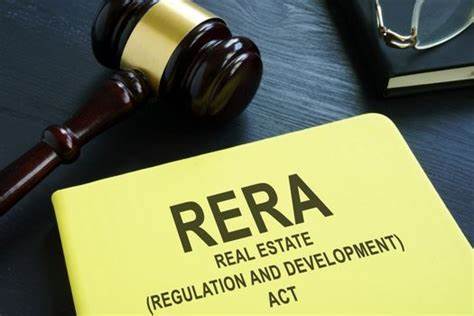Peace of mind is priceless, especially when it comes to the biggest investment of your life: your dream home. The Real Estate Regulatory Authority (RERA) acts as your guardian angel in this process, ensuring transparency and accountability in the real estate sector. But what exactly is RERA approval, and how can it benefit you?
This comprehensive guide will equip you with all the knowledge you need to navigate the RERA registration process with confidence.
Understanding the Real Estate Regulatory Authority (RERA)
Established in 2016, RERA is a game-changer for the Indian real estate landscape. It acts as a regulatory body, bringing much-needed structure and consumer protection to the industry.
Prior to RERA, buyers often faced issues like project delays, unclear land titles, and hidden costs. RERA tackles these concerns head-on, promoting fair practices and fostering trust between developers and buyers.
Benefits of RERA Approval for Buyers and Developers
For Buyers:
Enhanced Transparency: RERA mandates developers to register their projects and disclose crucial information like carpet area, project plans, approvals, and completion timelines. This transparency empowers you to make informed decisions.
Stronger Legal Framework: RERA establishes a robust legal framework that protects your rights as a buyer. It regulates project timelines, ensures fair pricing, and provides a dispute resolution mechanism for any grievances.
Financial Security: Developers must deposit 70% of the collected funds from buyers into a separate escrow account. This ensures the funds are utilized solely for project completion, minimizing the risk of delays or defaults.
For Developers:
Improved Market Reputation: RERA-registered projects enjoy a higher level of trust and credibility. This can attract serious buyers and facilitate faster project sales.
Streamlined Project Management: RERA enforces a standardized approach to project planning and execution. This can improve efficiency and potentially reduce project timelines.
Dispute Resolution: RERA provides a structured dispute resolution mechanism for developers as well. This helps resolve issues with buyers quickly and fairly, minimizing legal complications.
By ensuring a level playing field, RERA fosters a healthy real estate ecosystem that benefits both buyers and developers.
Does Your Project Need RERA Registration?
Not all real estate projects fall under RERA’s purview. Here’s a breakdown of the eligibility criteria:
Project Carpet Area: RERA registration is mandatory for projects with a total carpet area exceeding a certain threshold, which varies by state. You can find the specific limit for your state on the official RERA website.
Project Type: Generally, RERA applies to residential and commercial projects under construction or ongoing development. Completed projects or plots without development are typically exempt.
Exemptions:
While RERA registration is compulsory for most projects, some exceptions exist:
- Redevelopment projects where the land is already owned by residents.
- Renovation or repair work without any additional construction.
- Projects undertaken by government authorities or housing boards.
It’s crucial to verify the RERA registration status of your project before entering any agreements. This ensures you’re protected by RERA’s regulations.
A Step-by-Step Guide to RERA Registration
The RERA registration process is typically conducted online through the official website of your state’s RERA authority. Here’s a general roadmap:
1. Visit the RERA website for your state. Each state has a dedicated RERA website with project registration details and online application facilities.
2. Locate the project registration section. Look for a section dedicated to project registration or developer registration.
3. Create an account or login. You may need to create a new account or log in using existing credentials on the RERA website.
4. Fill out the application form. The online form will require details about the project, developer information, and supporting documents.
5. Upload required documents. These typically include project plans, approvals, land ownership documents, and financial statements. The specific document requirements may vary by state.
6. Pay the registration fee. The fee structure for RERA registration varies depending on the project size and state. You can usually pay the fee online using a debit/credit card or net banking.
7. Submit the application and track its status. Once you’ve submitted the application and uploaded all documents, you can track its progress online.
Remember, this is a general guideline. It’s recommended to consult the official RERA website of your state for the latest information and any specific procedures they may have.
Required Documents for RERA Application & Fee Structure
The specific documents required for RERA registration can vary slightly by state. However, here’s a general list of commonly needed documents:
- Project details: Project name, location, type (residential/commercial), carpet area breakdown.
- Developer information: Company registration documents, director details, financial statements.
- Land ownership documents: Land ownership proof, sanctioned layout plan, development permissions.
- Project approvals: Building approvals, environmental clearances, other relevant project sanctions.
- Project plans and specifications: Architectural drawings, floor plans, amenities details.
- Agreements and contracts: Sale agreements (model format), allotment letter (model format).
Here are some resources to help you locate the official RERA website and document requirements for your state:
- MahaRERA (Maharashtra): https://maharera.maharashtra.gov.in/
- UP RERA (Uttar Pradesh): https://www.up-rera.in/
- Gujarat RERA: https://gujrera.gujarat.gov.in/
Fee Structure and Payment Options:
The RERA registration fee varies depending on the project size and the state. Here’s a breakdown of the general structure:
- Minimum Fee: Most states have a minimum fee applicable to all projects.
- Variable Fee: This fee is typically a percentage of the project’s total cost of construction. The exact percentage may differ by state.
Payment Options:
The RERA registration fee can usually be paid online through the state RERA website using debit/credit cards or net banking.
Remember, these are just general guidelines. Always refer to the official RERA website of your state for the most up-to-date information on document requirements and fee structure.
Verifying RERA Registration of a Project & Red Flags
Before investing in any real estate project, it’s crucial to verify its RERA registration status. Here’s how:
Online Verification Tools:
Each state RERA website offers online search functionalities where you can enter the project name or developer details to verify its registration status.
Here’s an example:
- Maharashtra: On the MahaRERA website (https://maharera.maharashtra.gov.in/), you can search by project name, developer name, or district to find project details and registration status.
Red Flags to Watch Out For:
While verifying registration, be cautious of these red flags:
Project not listed: If the project you’re interested in doesn’t appear on the RERA website search results, it’s likely not registered. Don’t proceed further without clarification from the developer.
Missing or incomplete information: A registered project should have complete details like carpet area, approvals, and sanctioned plans displayed on the RERA website. Missing or incomplete information could be a cause for concern.
Unrealistic timelines: Promises of unbelievably quick completion dates can be a red flag. RERA mandates developers to disclose realistic timelines, so extreme deviations might indicate potential trouble.
Pressure to invest: Reputable developers understand the importance of RERA and won’t pressure you to invest before verification. Be wary of any tactics that push you to commit hastily.
By verifying RERA registration and being aware of these red flags, you can make informed decisions and safeguard your real estate investment.
What Happens After RERA Registration?
Once a project is RERA registered, both developers and buyers have specific obligations and rights:
Developer’s Obligations:
- Transparency: Developers must disclose all project details, including approvals, plans, and finances.
- Timely Completion: They are bound to complete the project within the stipulated timeframe as registered with RERA.
- Regular Updates: Developers must provide periodic updates on project progress to registered buyers.
- Quality Construction: They are obligated to maintain quality standards as per sanctioned plans.
Buyer’s Rights:
- Access to Information: Buyers have the right to access all project-related information disclosed by the developer on the RERA website.
- Dispute Resolution: RERA provides a structured mechanism for buyers to file complaints and seek redressal in case of disputes with developers.
- Compensation for Delays: If the project completion is delayed beyond the registered timeframe, buyers are entitled to compensation from the developer.
Dispute Resolution Mechanism Under RERA
RERA establishes a dedicated dispute resolution mechanism to address grievances between buyers and developers. This mechanism aims for speedy and fair resolution, minimizing the need for lengthy legal battles.
Additional Resources and FAQs
Important Contacts and helplines for RERA Authorities: Each state RERA website typically provides contact details for the RERA authority, including phone numbers and email addresses. You can use these resources to seek clarification or register complaints if needed.
Answers to Common Questions About RERA Approval: Many state RERA websites have dedicated FAQ sections that address common questions about project registration, buyer rights, and the dispute resolution process. These can be a valuable resource for gaining further clarity.
Is RERA registration mandatory for all real estate projects?
No, RERA registration is mandatory for projects above a certain carpet area threshold (which varies by state) and for projects under construction or ongoing development. Completed projects or plots without development are typically exempt.
How can I verify the RERA registration of a project?
Each state RERA website offers online search functionalities where you can enter the project name or developer details. You can also find project details and registration status displayed on the RERA website for registered projects.
What are some red flags to watch out for regarding RERA registration?
- Project not listed on the RERA website search results.
- Missing or incomplete information about the project on the RERA website.
- Unrealistic timelines promised by the developer.
- Pressure from the developer to invest before RERA verification.
What are my rights as a buyer in a RERA-registered project?
- Access to all project information disclosed by the developer on the RERA website.
- Ability to file complaints and seek redressal through the RERA dispute resolution mechanism in case of issues with the developer.
- Compensation from the developer if the project completion is delayed beyond the registered timeframe.
Where can I find more information about RERA in my state?
You can visit the official RERA website of your state. These websites typically provide project registration details, FAQs, contact information for the RERA authority, and downloadable resources.
Conclusion
RERA approval has revolutionized the Indian real estate landscape, fostering transparency, accountability, and buyer protection.
Understanding the RERA framework empowers you to make informed decisions and safeguard your investment. This guide has equipped you with the knowledge to:
- Verify RERA registration and identify red flags.
- Navigate the RERA registration process for projects that require it.
- Understand your rights and obligations as a buyer in a RERA-registered project.
With this knowledge, you can approach your real estate purchase with confidence, ensuring a smooth and secure journey towards your dream home.
Disclaimer
This blog is intended for informational purposes only and should not be construed as legal advice. Real estate laws and regulations can vary by state. For specific legal guidance pertaining to your situation, consult with a qualified lawyer or real estate professional.
We encourage you to explore the official RERA website of your state for the most up-to-date information and resources.
By leveraging RERA and conducting thorough due diligence, you can transform your real estate dreams into a reality with peace of mind.
Similar Topics
Boom or Bust? Unveiling the Future of Dubai’s Real Estate Market
Dubai’s property market has defied global trends, but will rising interest rates and geopolitical tensions trigger a slowdown? Explore the…
The Real Estate Market Gears Up for a New Generation of Homeowners
Explore the factors driving a surge in new homebuyers and how the real estate market is adapting to their evolving…
How NRI Investments are Shaping Indian Real Estate Market
Explore the rising trend of NRI investment in Indian real estate. Understand the factors driving this growth, investment options, and…
Why Real Estate Players are Turning to Debt Deals
Explore the rising trend of real estate players utilizing debt deals to finance projects. Understand the benefits, challenges, and future…
Trends in India Commercial Real Estate Market
Dive into the evolving landscape of India’s commercial real estate market. Explore key trends, investment opportunities, and the future outlook…
5 Trends shaping Indian Residential Real Estate Landscape in 2024
Dive into the top 5 trends transforming India’s residential real estate market in 2024. Discover evolving buyer preferences, innovative…






